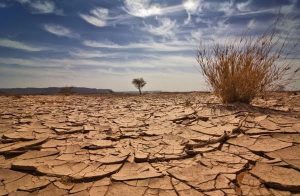Marshall Islands, Niger Republic, Seychelles and the Solomon Islands have been selected by the Abu Dhabi Fund for Development (ADFD) and the International Renewable Energy Agency (IRENA) to receive funding for transformative, replicable and innovative renewable energy projects through the IRENA/ADFD Project Facility.
IRENA said in a statement that four renewable energy projects in the Pacific and African developing countries were identified to receive $44.5 million in funding to support their implementation.
The projects it explained include a hybrid micro-grid project employing solar PV and advanced lithium-ion batteries, a hydropower project integrated wind and solar, and a combination project consisting of micro-grid and solar home kits.
It said the IRENA/ADFD Project Facility fourth round of funding was made at the recent 7th session of the IRENA Assembly in Abu Dhabi.
It equally noted that applications were evaluated by an international panel of experts based on their technical feasibility, economic or commercial viability and socio-economic and environmental benefits.
The projects are: in Marshall Islands, a 4.6-megawatt (MW) hybrid micro-grid project, using solar PV and advanced lithium-ion batteries, which would provide renewable energy access to over 16,000 people, and essentially eliminate fossil fuel based generation on three outer islands, and reduce it by more than a third on a fourth island was picked.
In Niger, the preferred project would focus on rural electrification for over 150,000 people, using 2.1MW solar PV micro-grids and solar home kits. 100 schools will also be electrified, drinking water supplies will be improved, and several thousand jobs will be created.
That of Seychelles was a government supported solar PV utility scale project which will integrate a 5MW solar PV plant into an existing wind farm, demonstrating an innovative space-saving solution for this small island nation. The project will also reduce the country’s dependence on fossil fuels, create almost 300 jobs, and supply renewable power to over 1,800 households — benefiting the entire population of 90,000 people.
For the Solomon Islands, it was a government-backed 20MW reservoir dam and hydropower facility that would diversify the country’s energy mix, provide renewable energy access to 5,000 people, create around 400 jobs, and avoid 44,000 tonnes of CO2 emissions per year that was selected.
IRENA’s Director-General, Adnan Amin said of the development: “Over the course of the last four years, the IRENA/ADFD Project Facility has identified path breaking renewable energy projects that are helping to expand access to energy, bolster energy security and provide sustainable, affordable energy for those who need it most.”
He added: “Importantly, this Facility is also putting in place an innovative process which supports transformational and replicable projects that can potentially bring sustainable energy to millions of people around the world.”
Similarly, the Director General of ADFD, Mohammed Saif Al Suwaidi, said: “ADFD is committed towards steadfast development in the renewable energy sector; it’s a crucial industry for sustainable continuity, long-term growth and constructive evolution of developing nations.”
“Over seven funding cycles, our USD 350 million partnership, IRENA/ADFD Project Facility, aims to support and enhance the developing world’s energy needs by tapping into their abundant renewable energy sources. This collaboration further exemplifies ADFD’s mission and commitment to provide governments with the financial resources, tools, methods and instruments to safeguard against future unknowns, grasp opportunities and seize desired development goals,” he added.
According to the statement, through the IRENA/ADFD Project Facility, ADFD provides concessional loans ranging from $5 million to $15 million per project.
Finance is also offered at 1 to 2 per cent lending rates with a 20-year loan period, including a 5-year grace period. Loans for each project cover up to half of the estimated project cost, leveraging additional funding from other sources.
$189 million has been allocated to 19 projects since 2013, through the IRENA/ADFD Project Facility, while over $387 million has been attracted in co-financing for a total of $576 million in new investment inflow.
Selected projects thus far have included off-grid, mini-grid and on-grid projects using wind, solar, hydro, geothermal and biomass sources. They will bring more than 100MW of renewable energy capacity online, and improve the livelihoods of over a million people.
IRENA also noted that applications for the next round of the funding will be accepted until 15 February 2017.





